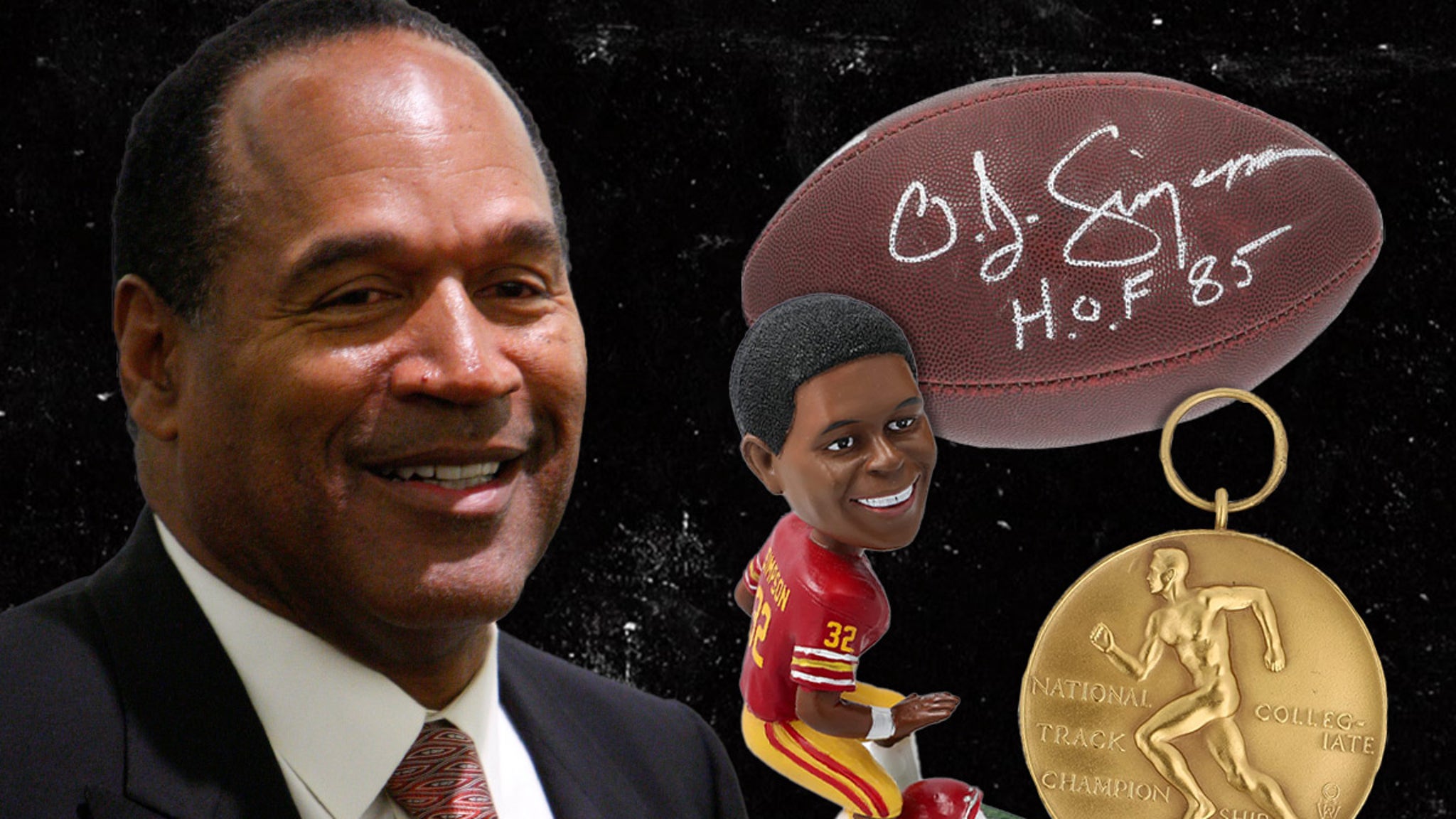Culture
Why Scott Turow Brought Back His Most Famous Hero for ‘Presumed Guilty’

The author and lawyer Scott Turow has never forgotten a harrowing conversation he had long ago with the mother of a young man charged with murder. Turow had successfully defended him in an earlier, less grave case, but this time he was clearly guilty.
It was a tragedy on many levels. But what struck Turow about the conversation was the mother’s fierce, primal love for her son despite everything. “She was just torn apart,” he said.
That memory was floating in the back of his mind as he conceived his latest novel, “Presumed Guilty,” about a high school student accused of murdering his girlfriend on a camping trip gone awry. The plot was inspired, too, by the 2021 murder of Gabby Petito, killed by a boyfriend whose parents closed ranks to protect him.
“I’ve always been struck by how terrible it is, what a shattering experience, for a parent when a child gets accused of a serious crime,” Turow said. “They think, ‘Is my love for this child so huge that I can’t recognize that he or she is a monster?’”
“Presumed Guilty” is Turow’s 13th novel, and the third to feature the former prosecutor (and now former judge) Rusty Sabich. Fans of Turow’s emotionally astute, legally complex and compulsively readable novels will remember meeting Rusty for the first time in the 1987 blockbuster “Presumed Innocent,” widely considered the gold standard for the modern courtroom thriller. (He’s also been in a 1990 movie and a 2024 mini-series, played by Harrison Ford and Jake Gyllenhaal, respectively.)
Turow has been praised for writing popular books that rise to the level of literature, much as John le Carré elevated the espionage novel to an art form. Most of his books are set in Kindle County, a stand-in for Chicago, and many of his characters return later in different books, evoking a bustling fictional community. His work has been translated into more than 40 languages and sold more than 30 million copies worldwide.
Why resurrect Rusty, last seen suspended in a cloud of misery in the 2010 novel “Innocent”? Turow doesn’t think of his characters as people, exactly, but keeps their continuing stories tucked inside his imagination and felt a little uneasy, leaving Rusty hanging like that. “I feel a certain personal loyalty to him, because he’s the man who changed my life,” he said.
He was chatting at his part-time home in Naples, Fla., where the neighborhood has large houses on small lots and athletic senior citizens in tennis visors power-walking on the sidewalks. He spoke precisely, thoughtfully and almost encyclopedically. You got the feeling he remembered the details of every legal case he’d ever been involved with, whether fictional or real.
“Presumed Guilty” sends Rusty back to the courtroom, defending the son of his fiancée in a twisty murder trial — this time in the rural Midwestern community to which he’s retired. In classic Turow fashion, the truth of the case is withheld until the very end. The emotional complications of this scenario notwithstanding, the book gives Rusty, 77, a poignant shot at the domestic happiness that has always eluded him.
“Can you remake your life,” Turow said, “when you have a sense of your own mistakes and your own role in your prior unhappiness?”
At 75, Turow has considered that question and exudes his own hard-won contentment. He’s mostly retired from the law, though he’s working on a lingering pro bono case. In 2008 he and his first wife, Annette, divorced after nearly 40 years together — it was “incredibly painful,” he said, but the right thing to do — and eight years after that, he got married again, to Adriane Glazier, a bank executive.
The humorist Dave Barry, a friend of Turow’s for some 30 years and his bandmate in the writers’ rock group the Rock Bottom Remainders, officiated.
Turow may come across as a serious, even grave person. But he isn’t really. Barry said the author cheerfully acceded to an on-the-spot instruction to incorporate lines from the song “Wild Thing” — including “Wild Thing/I think I love you” — into his marriage vows.
Turow has been known to sing lead vocals when the band plays the song, sometimes wearing an inexplicable novelty wig. “We are a very bad band, and I am the most untalented member,” he said.
“One of the reasons we love having him in the band is that he will abandon his dignity and do pretty much anything we ask him to,” Barry said via email.
Turow and his wife divide their time between their houses up north — in Evanston, north of Chicago, and in rural Wisconsin — and Florida. The population down here is generally more conservative than they are, and many of their friends are Canadians fleeing south for the winter. The house is light and airy, with golf gear in the garage and, on a recent Friday, a large English cream golden retriever lying companionably in the living room.
An assistant was working in a nearby office; Adriane, now retired from her corporate job, was volunteering at the local Humane Society shelter; the family’s second retriever was out getting some exercise. The dogs’ names are Doug and Brian, though Turow prefers Brian’s nickname, Monkey.
“Adriane happens to like the idea that the dogs should have human names,” he said, laughing. “I’m not keen on it, personally.”
Turow was born on the north side of Chicago, in a Jewish neighborhood he describes as almost claustrophobically close-knit. His grandparents were Yiddish-speaking Belarusian immigrants.
His father, a doctor, was verbally abusive and had a deep-seated, explosive anger. Though Turow believes that everyone “has not only a reason for their shortcomings, but a point of view about the world founded on those things,” he said, his father’s foundational troubles did not excuse his behavior. “I was always terrified as a child,” he said.
Turow’s father wanted him to be a doctor, but he wanted to be a novelist. He studied writing at Amherst, began publishing short stories and won a coveted teaching-and-writing fellowship to Stanford. Working on a (never published) novel about a tenants’ rent strike, he unexpectedly found himself excited by housing law — and by law itself, which felt like a curative to the emotional chaos of his childhood.
He enrolled in Harvard Law School and distinguished himself while still a student by publishing the nonfiction book “One L,” an instant classic that was almost novelistic in its portrayal of the emotional and intellectual turmoil of the first year of law school.
Turow took a job at the U.S. attorney’s office in Chicago and plunged into high-profile trial work, successfully prosecuting a Cook County judge charged with mail fraud and extortion, among other cases.
His deep understanding of the law and panoptic attention in the courtroom have informed his fiction ever since. “He’s listening to what the witness is saying, what the defense attorney is doing, what the judge is doing, how the bailiff is rolling her eyes, how the jurors are looking at each other — all the things that make his books so good,” said his friend Julian Solotorovsky, who met him when they shared an office back then.
He began writing “Presumed Innocent” for half an hour each day on his morning commute. It took him eight years, and it would be hard to overstate the almost electric excitement that greeted the book’s publication — the paperback sale, the film sale, the laudatory reviews, how it seemed that everyone was reading it on the train. Turow’s next book, “The Burden of Proof,” leaped to No. 1 on the New York Times hardcover best-seller list when it came out — even as “Presumed Innocent” was No. 1 on the paperback list.
Turow’s father put “Presumed Innocent” on a shelf in his office, where his patients could see it, but couldn’t bring himself to praise it. When Turow asked him if he’d read it, he responded, “Yeah, but I still think you could have gone to medical school.”
More books followed, with Turow, now a partner at a big Chicago law firm, switching to a part-time role so he would have more time to write, even as he took on more pro bono work.
He shares with many members of his profession an alarm about the direction the courts are taking in the United States. “Of course, it makes me worried about the stability of democracy when you have a Supreme Court that is gaily tearing down some of the most important guardrails we have,” he said.
Turow is two years younger than his most famous character; they’ve aged in tandem. “We’re both fortunate in not suffering, you know, debilitating physical problems,” he said. But he’s not too preoccupied with his age. (It might help that his wife is 16 years younger.)
In any case, they have a marriage “in which we default to kindness,” he said, and are lucky that everyone in their extended blended family — her ex-husband, his ex-wife, everyone’s new partners, a total of five children and (so far) eight grandchildren — gets along.
With “Presumed Guilty,” he says he’s ready to leave Rusty Sabich behind. But though the character’s arc is complete, the author’s is not. He’s working on a new book that begins when an old lawyer is startled to read an obituary for a man he believed his client had murdered 50 years earlier.
“I took a few months to ask if I wanted to write another novel, since it would be natural to feel I’d brought everything full circle,” he said. “But yes, I do. I have too much fun to stop willingly.”





























